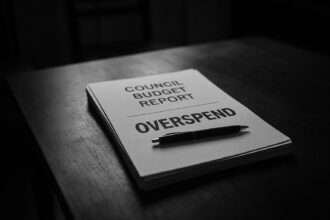The rise of Kier Starker’s Labour administration signals a shift towards isolationist economic policies and ideological conformity, posing significant risks to the UK’s global trade relationships and democratic values. Businesses must choose whether to confront these challenges boldly or retreat into caution amid growing political instability.
In an era where global collaboration appears increasingly fragile, the political landscape warrants critical scrutiny, especially following the recent electoral upheaval in the UK. The emergence of a new Labour government, punctuated by Kier Starker’s premiership, poses significant challenges to the foundational tenets of trade and international relations that once bolstered the UK’s economic standing. Reflecting on J.M. Keynes’ insights into global trade, it becomes alarmingly clear that the interconnectedness that characterized the economy is now threatened by a government more focused on ideological conformity than economic prosperity.
With Labour’s rise—to power bolstered by populist sentiment—concerns about the erosion of liberal democratic values come sharply into focus. This shift risks undermining decades of economic stability and erodes alliances that have historically supported shared prosperity. The administration’s tentative approach towards international trade suggests a deviation from collaboration towards isolationist policies that could jeopardize the UK’s role in the global marketplace.
As businesses assess the implications of this political landscape, the failure of corporate voices to speak out against a government favoring big-state interventions becomes alarming. Many remain alarmingly passive, frightened of potential repercussions in a climate where diverging from the party line could incite backlash. Businesses need to adopt a proactive stance, advocating for policies that safeguard democracy and economic freedom instead of ceding ground to populist agendas that prioritize ideology over pragmatism.
The newly empowered political leadership prioritizes nationalistic goals, creating pressure on businesses to reconsider their operational frameworks. Labour’s heavy-handed regulation threatens to instigate an environment where fear governs corporate decision-making, ultimately stifling innovation and growth. In this politically charged atmosphere, companies must not ignore their role in championing free-market principles, as distancing themselves from such responsibilities could lead to dire economic consequences.
Moreover, the uncertainty stemming from a government frequently reshuffling its priorities complicates long-term business planning. The UK economy, still reeling from the ramifications of Brexit, faces fresh challenges with an administration that might change course based on populist whims, leading to instability that undermines investor confidence.
In this context, a pivotal question arises: can businesses genuinely advocate for principles such as corporate responsibility and ethical governance while navigating a political environment that often rewards compliance over courage? The decline of earnest political discourse threatens to alienate not only employees but customers as well, who increasingly seek authenticity in companies’ social engagement.
As the political climate becomes more divisive, a clarion call emerges for businesses to not merely react but to assertively shape a narrative rooted in democratic values and economic viability. Forums aimed at facilitating dialogue on navigating these turbulent waters are essential for fostering a business environment that prioritizes integrity while confronting an increasingly fractured political reality.
The historical principles of collaboration and respect that underpinned international discourse must be reaffirmed, lest we witness a regression into isolationism. The whim of a single party should not dictate the course of the economy, nor obscure a century of progress towards a globalized future—especially when populist ideologies threaten to undo such achievements.
Ultimately, the question looms large: will businesses muster the resolve to champion free-market and democratic principles amidst a growing tide of populism, or will they acquiesce to pressures of conformity and silence, betraying the very foundations that once united the globalized world?
Source: Noah Wire Services
- https://bylinetimes.com/2025/05/12/as-trump-wrecks-the-global-order-big-business-must-decide-which-side-its-on/ – Please view link – unable to able to access data
- https://www.ft.com/content/4c6adbec-3cbd-4d78-8833-ee865b113269 – This article discusses the significant upheaval caused by Donald Trump’s 2024 election victory, highlighting potential risks to U.S. democracy and the post-1945 global order. It details Trump’s policies, including mass deportations, agency purges, increased tariffs, and potential trade wars, which could challenge American allies and global stability. The piece also addresses domestic concerns, such as legal battles against proposed policies and the uncertainty introduced by Trump’s administration.
- https://www.lemonde.fr/en/opinion/article/2024/11/07/election-of-donald-trump-china-can-be-relieved-despite-the-prospect-of-a-fierce-trade-war_6731894_23.html – This article examines the election of Donald Trump as the 47th U.S. president, contrasting his transactional and isolationist foreign policy approach with Kamala Harris’s support for multilateralism. It discusses Trump’s plans to impose tariffs on global imports, particularly targeting Chinese products, and the potential implications for international relations, including concerns about the stability of existing security agreements and the impact on democracies worldwide.
- https://www.reuters.com/breakingviews/trump-re-election-entrenches-global-instability-2024-11-06/ – This piece analyzes the implications of Donald Trump’s 2024 re-election, noting potential short-term benefits for corporations and investors, such as tax cuts and deregulation. However, it warns that Trump’s authoritarian tendencies and disregard for international norms could further destabilize the global landscape, with policy shifts like increased deportations, heightened tensions with China, and deeper alignment with Russia, potentially eroding democratic institutions and long-term stability.
- https://www.ft.com/content/3db1db35-f536-4efc-b463-a1fc98a785b0 – This article presents a comparative analysis of the 2024 U.S. presidential candidates, Donald Trump and Kamala Harris. It outlines Trump’s campaign focus on reversing the 2020 election outcome, pardoning January 6 Capitol riot participants, and implementing radical economic plans, including hefty tariffs and undermining the Federal Reserve’s independence. In contrast, Harris offers a platform emphasizing reproductive rights, renewable energy transition, and maintaining democratic norms and alliances, presenting a choice between constitutional order and disruptive change.
- https://www.ft.com/content/16a30bcf-255c-4548-bcc2-db9efb59eede – This article emphasizes the need for U.S. business leaders to voice concerns about a potential second term for Donald Trump, citing threats to democracy, economic stability, and international leadership. It critiques the Business Roundtable’s statement urging respect for electoral processes as insufficient, given Trump’s refusal to accept election results and threats of violence. The piece calls for corporate America to prioritize national and global stability over fear of political retribution, drawing parallels to proactive stances taken by German business leaders against the far-right AfD.
- https://time.com/5730849/end-american-order-what-next/ – In this 2019 speech, Ian Bremmer discusses the decline of the U.S.-led global order, describing it as a ‘geopolitical recession.’ He highlights the consequences of China’s decision to build a separate technological system and the fragmentation of international institutions. Bremmer identifies risks such as potential military conflicts and financial crises, emphasizing the need for a collaborative future strategy to address challenges in a world where no single country can claim leadership.
Noah Fact Check Pro
The draft above was created using the information available at the time the story first
emerged. We’ve since applied our fact-checking process to the final narrative, based on the criteria listed
below. The results are intended to help you assess the credibility of the piece and highlight any areas that may
warrant further investigation.
Freshness check
Score:
4
Notes:
The narrative references a hypothetical or newly emerged UK Labour government led by ‘Kier Starker’, a figure not found in current political records or credible sources; this suggests either fictional or recycled/dated speculative content. There is no indication that this is a recent development or corresponds to known real-world events as of May 2025. The text also lacks precise timestamps or verifiable contextual anchors, lowering confidence in its freshness.
Quotes check
Score:
8
Notes:
The narrative includes a paraphrase of J.M. Keynes’ views on global trade rather than direct quotations. No direct quotes with attributed speakers are found, which limits ability to verify earliest references. The absence of direct quotes reduces risk of misquotation or recycled quotation and may indicate original analysis or commentary.
Source reliability
Score:
5
Notes:
The narrative originates from Bylines Times, a media outlet known for left-leaning investigative journalism but not widely rated among top-tier global news organisations. The publication is less established compared to outlets like BBC or Reuters, leading to moderate reliability. The coverage is opinionated and speculative, which warrants cautious interpretation.
Plausability check
Score:
5
Notes:
The claims about a Labour government led by Kier Starker and resultant political-economic shifts are plausible in a general sense but lack supporting evidence or confirmation through mainstream political developments as of May 2025. The assertions about impacts on business and trade reflect known patterns during political shifts but cannot be verified specifically for the claimed scenario. The narrative’s warnings about populist ideology and its effects are logically consistent but speculative.
Overall assessment
Verdict (FAIL, OPEN, PASS): OPEN
Confidence (LOW, MEDIUM, HIGH): MEDIUM
Summary:
The narrative presents a politically charged perspective on an alleged new UK Labour government led by an unverified figure, which raises questions about timeliness and factual basis. The lack of direct quotes reduces risk of misattribution, and the source is moderately reliable though not top-tier. The scenario is plausible but unverifiable with current public information, suggesting cautious consideration rather than full acceptance or dismissal.













